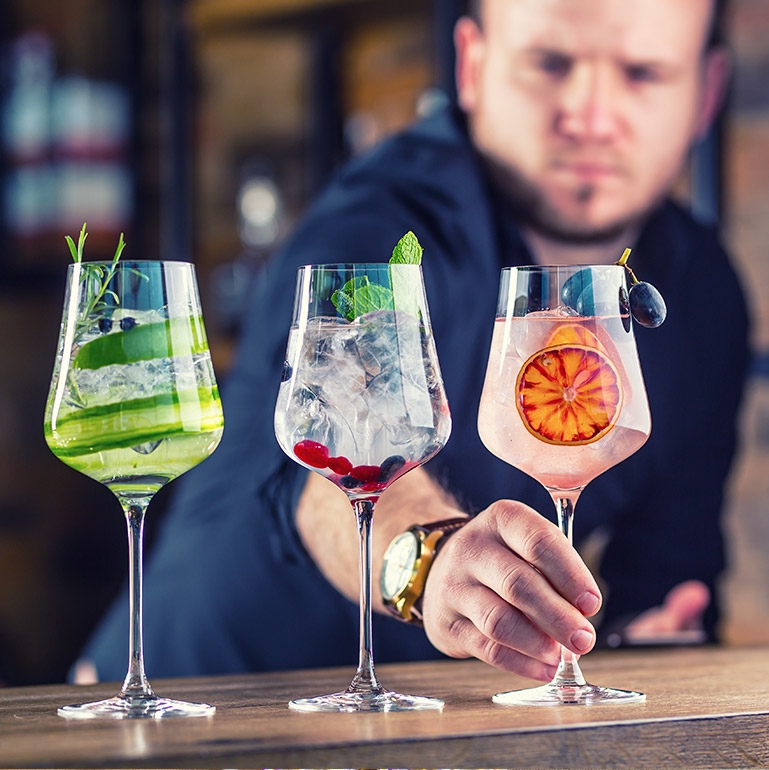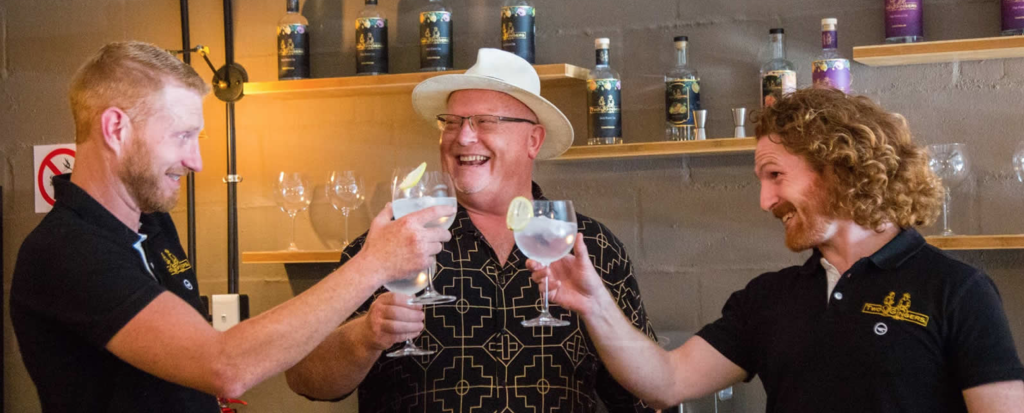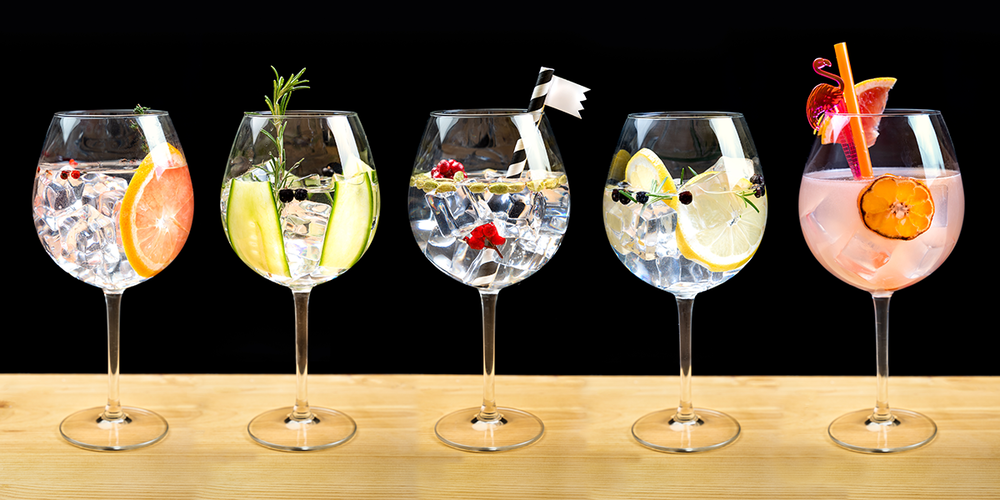
A Spirited Journey Through the Mother City.
Gin tasting has become a sensation in recent years, and Cape Town has emerged as a hub for gin enthusiasts. The city’s vibrant gin scene offers an array of distilleries, tasting experiences, and breathtaking settings to indulge in this trendy spirit. Let’s explore why gin tasting is so popular, how it can enhance team-building activities, where you can enjoy gin tasting in Cape Town, and answer the top 15 frequently asked questions about this delightful experience.
Gin Tasting in Cape Town:
See More Gin Tasting Deals in Cape Town:

Two Gingers Gin
What could be more unusual than two acquaintances from different ends of the spectrum becoming best mates?
One, a 55-year-old I.T. Executive, bald, fairly large English-speaking South African (Engelsman) and the other a 30-year-old builder with a rich Afrikaans culture (Boerseun).
Well for one, we both have a real sense of fun and humor to go with it and for two, we both love a good braai and a jol… Don’t we all?
However, it is the third commonality of belonging to a small genetic pool known as Gingers or Ranga’s (Orangutans) that really cemented our friendship.

Move on a couple of years to a holiday at Phinda Private Game Reserve in northern Kwa-Zulu Natal where our guide on a rainy afternoon game drive, Daniel Scott, pointed out the aroma in the air from a Curry-Bush plant.
This sparked the idea of making a Curry-Bush Gin – something that we are yet to do!
Well, it was obvious that we had to have “Ginger” in our brand name, so we came up with the Dutch word for Ginger being “Gember” and aptly named our artisanal plant in Muizenberg the Gember Distillery.
It then dawned on us that Gember might not be a memorable name that people will easily recount and remark on, so the concept of Two Gingers Gin was born.
We haven’t looked back since and, just under a year later, we have crafted and launched some super tasty gin that has oodles of flavour without having to add anything other than plain tonic water.
Yes you read this right, no garnishing and no flavoured tonic water required to experience a great GnT amongst friends.
To round-out the beginnings of our story, we really wanted to “let the Still do the Talking” so we hereby introduce you to our newly developed tag line for our brand which is: Two Gingers Gin

Why is Gin Tasting So Popular?
- A Plethora of Flavors: Gin boasts an incredible variety of flavors, thanks to the diverse range of botanicals used in its production. From citrus and floral notes to exotic spices, there’s a gin for every palate.
- Versatile and Mixable: Gin’s versatility makes it a favorite among mixologists. Its delicate yet complex flavors blend harmoniously with a wide range of mixers and garnishes, allowing for endless cocktail possibilities.
- Craft and Artistry: Gin distilleries have transformed into hubs of creativity and craftsmanship. With small-batch production and attention to detail, gin makers experiment with unique flavor profiles, making each bottle a work of art.
- Social Media Buzz: The rise of social media has played a significant role in gin’s popularity. Captivating cocktail presentations and beautifully crafted gin bottles have become Instagram sensations, spreading the gin craze worldwide.
Gin Tasting for Team Building Activities:
- Breaking the Ice: Gin tasting provides a relaxed and informal setting for team members to interact, fostering communication and rapport-building among colleagues.
- Shared Experience: Exploring various gin flavors and discussing tasting notes encourages teamwork and collaboration, creating shared memories and bonding opportunities.
- Creativity and Innovation: Gin tasting can inspire creative thinking and innovation, as participants experiment with different gin combinations and develop unique cocktail recipes together.
- Celebrating Diversity: Gin’s diverse range of botanicals mirrors the diverse strengths and talents within a team, emphasizing the importance of embracing individuality and appreciating differences.
Top 15 Frequently Asked Questions about Gin Tasting:
- What is gin made from? Gin is primarily made from grain or malt spirits that are flavored with juniper berries and other botanicals. These botanicals can include herbs, spices, fruits, and flowers, which give gin its distinct flavors.
- What is the difference between London Dry Gin and other types? London Dry Gin is a style of gin known for its dryness and purity. It is made using a traditional distillation method and does not contain any added sweeteners or flavors. Other types of gin may have different production methods and could include additional ingredients.
- What are botanicals? Botanicals are natural ingredients used in gin production to add flavor and aroma. Juniper berries are the key botanical in gin, but other common botanicals include coriander, citrus peels, angelica root, orris root, and cardamom. Different combinations of botanicals create unique flavor profiles in gins.
- How is gin distilled? Gin is distilled by first fermenting a grain or malt base, which is then distilled to create a neutral spirit. This spirit is then re-distilled with the chosen botanicals, extracting their flavors and aromas. The distillation process can vary among distilleries, impacting the final character of the gin.
- What is the recommended way to taste gin? To taste gin properly, pour a small amount into a glass and take a moment to appreciate its aroma. Swirl the gin gently to release the aromatics, then take a small sip and let it coat your palate. Notice the flavors, botanical nuances, and any lingering aftertaste.
- What are the common gin tasting notes? Gin tasting notes can vary greatly depending on the brand and botanical selection. Common tasting notes include juniper, citrus (such as lemon or grapefruit), herbs, spices (like coriander or cardamom), floral hints, and sometimes even earthy or woody undertones.
- How should I store gin at home? To maintain the quality of your gin, store it in a cool, dark place, away from direct sunlight or heat sources. Keep the bottle tightly sealed to prevent oxidation and flavor deterioration. Avoid storing gin near strong odors, as it can absorb aromas from its surroundings.
- Can I visit distilleries for gin tastings? Yes, many gin distilleries offer tours and tastings to the public. Check the websites or contact the distilleries in Cape Town to inquire about their availability, booking procedures, and any specific visiting hours or requirements.
- What are some popular gin cocktail recipes? Popular gin cocktails include classics like the Gin and Tonic, Martini, Negroni, Tom Collins, and Gimlet. Additionally, creative mixologists have introduced countless gin-based cocktails with unique flavor combinations. Experimenting with different recipes can be part of the fun!
- Can I buy gin online? Yes, many online retailers offer a wide selection of gins for purchase. Ensure that you are of legal drinking age in your country and that the online retailer adheres to local regulations regarding alcohol sales and shipping.
- What are some non-alcoholic gin alternatives? Non-alcoholic gin alternatives, known as “gin alternatives” or “gin-inspired spirits,” have gained popularity. These alcohol-free options mimic the flavors and botanical complexity of gin, providing a similar experience without the alcohol content.
- Is gin gluten-free? Most gins are gluten-free since the distillation process removes gluten proteins. However, some gins may use gluten-containing ingredients, so it’s best to check the brand or consult the manufacturer if you have specific dietary requirements.
- What is the history of gin? Gin has a fascinating history that dates back centuries. It originated in the Netherlands in the 17th century when Dutch physicians used juniper berries to treat various ailments. This medicinal concoction was known as “genever,” which eventually made its way to England during the Thirty Years’ War.
In England, gin evolved from a medicinal drink to a popular and affordable spirit. The British government heavily taxed imported spirits, leading to a rise in domestic gin production. This period, known as the “Gin Craze” in the 18th century, saw gin consumption surge, causing social problems and prompting government intervention.
Eventually, laws were passed to regulate the production and sale of gin, leading to the emergence of high-quality gins produced by reputable distillers. Gin’s popularity endured, and it has experienced a renaissance in recent years, with a focus on craft distillation and innovative flavors.
- Can I infuse my own gin at home? Yes, infusing gin at home is a creative and enjoyable way to experiment with flavors. Start with a high-quality, neutral gin and add botanicals of your choice. Popular choices include citrus peels, herbs, spices, berries, or even tea. Place the botanicals in the gin and let them infuse for a few days or weeks, depending on your desired intensity. Remember to strain the gin before consuming or using it in cocktails.
- Are there any gin festivals in Cape Town? Cape Town is known for its vibrant food and drink scene, and gin festivals are no exception. While specific festival dates may vary, keep an eye out for events like the Cape Town Gin Festival, which showcases a variety of local and international gins, offers tastings, masterclasses, and opportunities to interact with gin experts. Check local event listings or online platforms for the latest information on gin festivals happening in Cape Town.
Where to Experience Gin Tasting in Cape Town:
- Hope on Hopkins: Located in Salt River, Hope on Hopkins offers guided gin tastings, where you can learn about the distillation process and sample their award-winning gins.
- Woodstock Gin Company: Nestled in the vibrant suburb of Woodstock, this distillery offers tastings of their handcrafted gins, showcasing their commitment to quality and local ingredients.
- Inverroche Distillery: Just outside Cape Town, in Stilbaai, lies the Inverroche Distillery. Here, you can embark on an immersive gin tasting journey, exploring their signature fynbos-infused gins.
- The Gin Bar: Situated in Cape Town’s CBD, The Gin Bar boasts an extensive gin menu and a cozy atmosphere, making it a go-to spot for gin enthusiasts seeking a relaxed tasting experience.
Gin tasting in Cape Town provides a delightful journey through the diverse world of gin. Its popularity stems from the intriguing flavors, mixability, craftsmanship, and social media buzz surrounding this beloved spirit. Additionally, gin tasting serves as an excellent team-building activity, fostering camaraderie, creativity, and a shared appreciation for the art of gin.
In Cape Town, you can indulge in gin tasting experiences at renowned distilleries like Hope on Hopkins, Woodstock Gin Company, Inverroche Distillery, or enjoy a relaxed atmosphere at The Gin Bar. These establishments offer guided tastings, allowing you to explore a wide range of gins and learn about their production processes.

